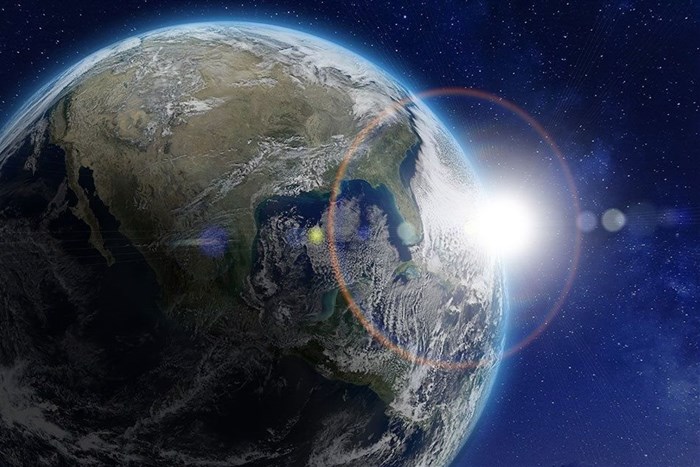Appealing to the rational individual in a climate crisis: Why we need to take ownership of our planet

We are actors in this narrative, whether you consider it an act of divine creation, a careful page of code or a collision of particles billions of years ago. We are each one of almost eight billion actors in this narrative, and some might have bigger roles than others, but we are all actors in it.
Every day we make choices that affect our narrative and according to many of the world’s top scientists, our choices have brought us near the point of no return for our planet.
Although these choices can’t be unmade, each one of us actors has the ability to make better, more regenerative choices now and going forward.
Among these actors is Frank, your everyday suburbanite sitting in the backyard with his family having a barbeque.
Sitting on the picnic table in front of Frank is a beef burger, and to its right, a veggie burger.
The veggie burger here represents an environmentally friendly option. It represents the prolongation of our charmed narrative here on this Earth. Meanwhile, the beef burger represents an option that is unsustainable, putting our narrative on track for a tragic end.
But Frank enjoys beef, so he reaches for the beef burger.
At the end of the day, Frank’s decision to reach out for the beef burger instead of the veggie burger is the result of a rational calculation: the product of a simple net benefit equation.
Frank enjoys beef. Thinking only of himself, Frank determines that he will get more net benefit from eating the beef burger. He might know that opting for the veggie burger is a more regenerative option, but he also knows that he is just one individual among many who would need to opt for the veggie burger to make a difference.
As a result, he rationalises that his pleasure as an individual outweighs his environmental impact as an individual. He eats the beef burger.
Now, Frank is not a bad person. Frank’s not crazy. He doesn’t want to watch the world burn. In fact, he would love to see future generations grow up in a world full of clean air to breathe. He is just unable to see how he, an individual, can make a difference in the longevity of our planet.
Frank is, simply put, a human being like any other.
He is a rational individual making a rational calculation to maximise his personal benefit.
The issue is not that Frank isn’t interested in incorporating environmental considerations into his net benefit equation. The issue is that he doesn’t know how.
We need to stop finger wagging at people like Frank. He is just doing his best as a rational individual navigating a complicated world.
Frank wants to help. He just doesn’t believe that he can.
What we need to do, instead, is introduce Frank to the key environmental considerations at play in the bigger picture of our narrative. Then, we need to show Frank how to factor these environmental variables into his net benefit equation.
First and foremost, Frank needs information.
He needs to know what goes into that beef burger as opposed to that veggie burger. He needs to be conscious of the bigger narrative that he belongs to, and understand how his choices impact it.
Beyond this, Frank needs incentives.
Inevitably, the net benefit calculation becomes more difficult when you add more variables into it. He needs a reason not to give up.
He needs some way of seeing the collective human enterprise to which he, as an individual, belongs. He needs to see that his influence is not negligible.
He needs to feel a sense of personal ownership over the planet.
Frank wants to help. He just doesn’t know how.
I believe that there are a lot of people like Frank in this world who want to intervene and change our planet’s course.
But, like Frank, they feel too small as individuals in a big world. They don’t feel that they have the ability to affect change in our planet’s climate crisis.
But what if they did?
What if Frank knew that there were thousands of other people out there, just like him, reaching for that veggie burger? What if he could see them?
What if there was an immediate, tangible incentive for Frank to make the more environmentally regenerative choice?
That’s where we come in.
Planet Meta’s goal is to provide individual consumers, as well as companies and suppliers with an alternative economy where regenerative metrics are the measures of success.
On our educational platform, consumers are rewarded with a piece of the Planet Meta business for learning about our environmental impact and acting responsibly in this narrative of life on Earth. They are given a personal, tangible stake in the collective enterprise of humanity and its habitat through Planet Meta.
Whether you believe in a glorified god, a precise programmer or a serendipitous scientist, we believe that if we act towards a common goal, we can create a future beyond carbon emissions and unsustainable materials.
Choose to be a part of the future. Choose to take ownership over your planet and the narrative of life itself, by joining fellow Sapiens on planetmeta.com.
Ad vitam - To life!
Team Meta